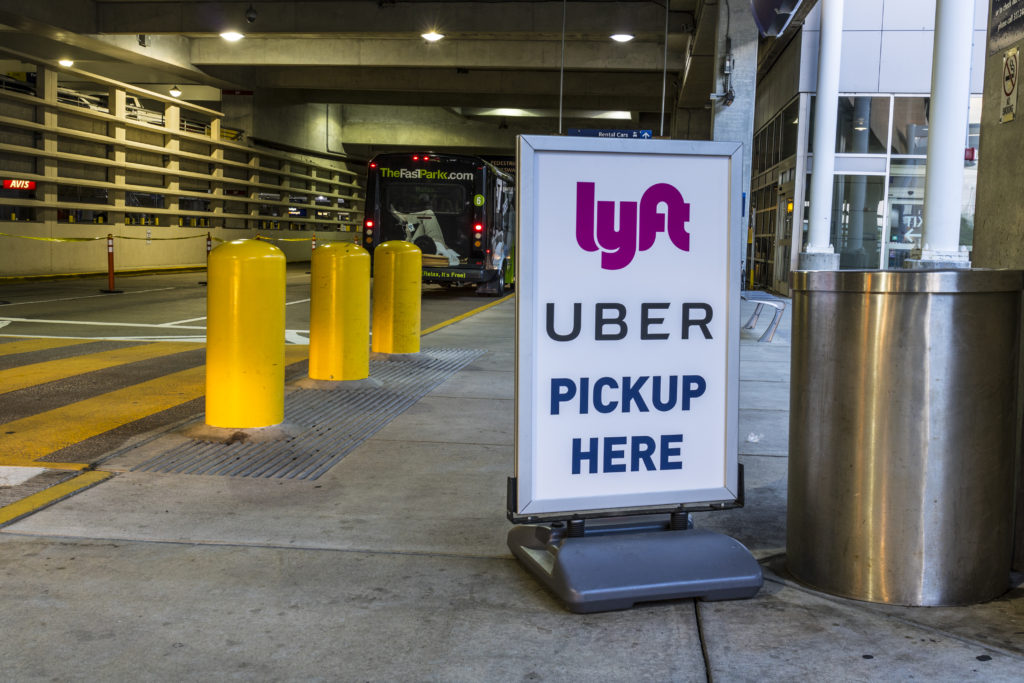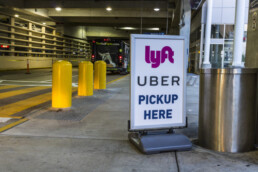California Supreme Court Decides Non-Discretionary Payments Are To Be Included When Calculating Overtime Pay
In a published opinion, Ferra v. Loews Hollywood Hotel LLC, 11 Cal. 5th (2021), the California Supreme Court examined the issue of whether the state legislature intended the term "regular rate of compensation" as it is used under California Labor Code Section 226.7(c) has the same meaning as the term "regular rate of pay" pursuant to California Labor Code Section 510(a), so that an employer's calculation of overtime or premium pay owed to an employee must account for the employee's hourly wages and non-discretionary payments for work performed by the employee during missed meal or break and recovery periods. The Court determined that it does!
What are non-discretionary payments?
Non-discretionary payments are payments for an employee's work that are owed under a prior contract, agreement or promise between the employer and the employee. Non-discretionary payments are not determined at the sole discretion of the employer, meaning that an employee will have meaningful input when arriving at the agreement to receive non-discretionary payments from an employer. Examples of non-discretionary payments or wages include hiring bonuses, attendance bonuses, individual or group production bonuses, and incentive bonuses.

What happened in Ferra?
Non-discretionary payments were at the heart of the issue underlying the Ferra lawsuit filed before the California Supreme Court. Jessica Ferra, a bartender employed by Lowes Hollywood Hotel LLC, filed a lawsuit against Loews alleging that the company failed to include her non-discretionary payments - specifically quarterly incentive payments - when calculating her regular rate of pay for overtime or premium payments owed to her for work performed during missed meals, and rest break periods as required by the California Labor Code Section 510(a). Loews argued that under its interpretation of the law, Jessica was only to be compensated her hourly wage - or regular rate of compensation - under California Labor Code Section 226.7(c), meaning that the company should not have to include quarterly incentive payments in calculating overtime or premium payments that Jessica accrued while working through her meal and rest break time.
At trial and on appeal, Jessica Ferra lost both times, meaning the trial court and appeals court agreed with Loews that "regular rate of compensation" and "regular rate of pay" had two different definitions, despite being used interchangeably throughout the California Labor Code and by the Industrial Welfare Commission (IWC). However, the California Supreme Court granted review of Ferra's lawsuit and reversed the lower court decisions. Essentially, the California Supreme Court found Loews' interpretation of the law to be incorrect, and that "regular rate of compensation" and "regular rate of pay" have the same meaning under California wage and labor laws.
To arrive at the conclusion that "regular rate of compensation" under Labor Code Section 226.7(c) and "regular rate of pay" under Labor Code Section 510(a) are synonymous, the California Supreme Court unpacked in detail the lengthy legislative history behind the creation of the Industrial Welfare Commission (IWC); the Court reviewed the state legislature's adoption of California Labor Code Sections 226.7(c) and 510(a); and, it discussed how California's wage and labor policies are intended to mirror federal law where consistent, mainly, the Fair Labor and Standards Act (FLSA). The underlying goal of California and Federal wage and labor laws are meant to protect employees from meal and rest break violations by penalizing employers for non-compliance with meal and rest break laws.
Key Takeaways
One key takeaway from the Ferra lawsuit for employees is that regular rate of compensation and regular rate of pay are synonymous or have the same meaning. The California Supreme Court noted during its discussion of the legislative history that the Industrial Welfare Commission adopted an overtime or premium pay requirement for meal or rest break period violations using the term "regular rate of compensation", while at the same time the IWC issued an adopted wage order revising overtime policies that included use of the term "regular rate of pay". In short, Loews' interpretation was wrong as the Court outlined several instances in California's legislative history where "compensation" and "pay" along with "regular rate" were used interchangeably to describe how employees wages are to be calculated. Ultimately, Ferra determined that employees are entitled to receive non-discretionary wages or payments as part of the calculation for the employee's pay - or compensation - for overtime work performed during missed meal and rest break time.
The second key takeaway from the Ferra lawsuit for employees is that the California Supreme Court ruled that its decision would have retroactive application in workplaces throughout California. What this means is that employees in California may be owed additional overtime or premium pay for non-discretionary wages or payments accrued for work performed by the employee during missed meal and rest break periods that were not calculated in the employee's regular rate of compensation or regular rate of pay. Each case will depend on the specific facts, so it is important to consult with an experienced labor law attorney to assess the specifics of your case to determine if you are owed additional compensation and unpaid wages from your employer.
Free Consultation
Srourian Law Firm, with locations in Los Angeles, Westwood, Woodland Hills, and Orange County is experienced in all aspects of employment law including wage, labor, meal and rest break violations in the workplace, and have aggressively represented employees in Los Angeles, Hollywood, Santa Monica, Orange, Irvine, Anaheim, Santa Ana, Newport Beach, Costa Mesa, Fullerton, Tustin, Mission Viejo, San Clemente, Garden Grove, Laguna Niguel, Brea, Fountain Valley, Aliso Viejo, Yorba Linda, Westminster, Laguna Hills, Cypress, and La Habra.
If you or someone you know suffered employment violations, you may have certain employee rights under state and federal law, and may be entitled to compensation as a part of a class action lawsuit. Please contact us to speak with one of our lawyers for a free consultation.
California Protects Warehouse Employees Against Unfair Labor Practices

The on-going feud between state governments and big tech companies intensified on September 22, 2021 when California Governor Gavin Newsom signed California Assembly Bill 701 (A.B. 701), making California the first state to impose regulations on companies that require warehouse distribution center employees to meet unfair productivity quotas. A.B. 701 - the Warehouse Distribution Centers Bill - amends the California Labor Code to include new provisions taking aim at companies like Amazon that implement unfair labor practices that exploit employees in order to fulfill delivery orders. A.B. 701 also prevents job seekers from being discriminated against when applying for or pursuing a different job if the job applicant filed to receive worker’s comp benefits during prior employment.
What is A.B. 701?
Generally, the purpose of California Assembly Bill 701 (A.B. 701) is to protect warehouse distribution center employees against impending job loss for failing to meet employer established productivity quotas. The author of the new law, California Assemblywoman Lorena Gonzalez states, “worker’s aren’t machines. We’re not going to allow a corporation that puts profits over worker’s bodies to set labor standards back decades just for same-day delivery.” The new law will protect both current and former workers employed at a warehouse distribution center.
What is a productivity quota?
A.B. 701 defines quota as a work standard under which an employee is assigned or required to perform at the specified productivity speed or perform a quantified number of tasks, or to handle or produce a quantified amount of material, within a defined time period and under which the employee may suffer an adverse employment action if they fail to complete the performance standard.
Essentially, a quota is created by the employer or company of which the employee is responsible to meet. The quota consists of the number of tasks the employee is expected to complete within a certain amount of time. The problem arises when the quota is unfair, yet employees are still expected to perform tasks to complete the quota, and if the employee cannot do so, then the employee may experience an adverse employment action.
What is an adverse employment action?
In California, an adverse employment action is viewed as any type of retaliatory action taken by an employer that is reasonably likely to have a negative effect on an employee’s job performance, opportunities for a promotion, or ability to seek employment elsewhere. The most common examples of an adverse employment action are job loss or termination, reduced wages, and demotion to a lower employment position or job title.
What changes will happen because of A.B. 701?
Currently, companies like Amazon are not held accountable for providing employees with adequate notice of their productivity quotas and the adverse employment actions that may occur for failing to meet those quotas. A.B. 701 requires companies to provide more transparency to warehouse distribution center employees. For example, the bill provides greater protections to warehouse distribution center employees in the following ways:
- Employers must provide adequate notice to every existing and new employee in writing describing each quota the employee is responsible to meet;
- Employers must provide notice to all employees in writing of any adverse employment actions that may result from failing to meet a quota;
- Employees will not be required to meet a quota that violates the employee’s right to meal and rest or break time, including using the bathroom;
- Employers are prohibited from taking any adverse employment action against an employee for not meeting a quota if the quota violates the employee’s right to meal and rest or break time, including using the bathroom;
- Employees must receive productive time credit towards any quota for actions taken by the employee to comply with California’s health and safety laws for the workplace;
- Employees may receive productive time credit towards any quota during meals and rest or break time if the employee is required to be on call during those times;
- Current and former employees have the right to request a written description of each quota and a copy of the most recent 90 days of the employee’s performance towards meeting the quota if the employee believes the company created a quota that violates the employee’s right to meals and rest or break time.
Another key component of the new law is that employees will have the ability to file a lawsuit for injunctive relief to obtain court ordered compliance with the law against employers and companies. Employees that are successful in the lawsuit for injunctive relief may be awarded suspension of the unfair quota, the court may reverse an unlawful termination of the employee for not meeting a quota that violated the employee’s labor rights, the employer and company may be ordered to cover the employee’s costs and attorney’s fees for filing the lawsuit. Each case will depend on the specific facts, so it is important to consult with an experienced labor law attorney to assess the specifics of your case.
A.B. 701 is scheduled to take effect in California on January 1, 2022.
Free Consultation
Srourian Law Firm, with locations in Los Angeles, Westwood, Woodland Hills, and Orange County is experienced in all aspects of employment law including Warehouse Employee related health and safety violations in the workplace, and have aggressively represented employees in Los Angeles, Hollywood, Santa Monica, Orange, Irvine, Anaheim, Santa Ana, Newport Beach, Costa Mesa, Fullerton, Tustin, Mission Viejo, San Clemente, Garden Grove, Laguna Niguel, Brea, Fountain Valley, Aliso Viejo, Yorba Linda, Westminster, Laguna Hills, Cypress, and La Habra.
If you or someone you know suffered employment violations, you may have certain employee rights under state and federal law, and may be entitled to compensation as a part of a class action lawsuit. Please contact us to speak with one of our lawyers for a free consultation.
Update on COVID-19 Related Legal Issues

The scope of COVID-19 related lawsuits continues to expand as workers across the country are filing lawsuits seeking protection and damages from unfair labor practices. Moreover, there is a sense that more cases will be filed as more employees are impacted by the pandemic and businesses close, sometimes with little or no notice to soon-to-be unemployed workers.
Congress enacts the Families First Coronavirus Response Act
In March 2020, when Congress realized that a shut-down was imminent, Congress passed the Families First Coronavirus Response Act (FFCRA) which requires certain employers to offer employees paid sick leave or expanded family and medical leave for COVID-19 related reasons. Employees must have been employed for at least 30 days to benefit from FFCRA.
In general, the FFCRA provides for two weeks (up to 80 hours) of paid sick leave with regular pay if the employee is unable to work due to quarantine, or experiencing COVID-19 symptoms. Also, under the FFCRA, if an employee is unable to work due to the need to provide care for another individual under quarantine, or if their child’s school or child care provider closes due to COVID-19, the employee is allowed two weeks (up to 80 hours) of paid sick leave at two-thirds regular pay.
When an employee is unable to work in order to provide child care due to schools or child care being closed, employees are eligible for an additional 10 weeks of paid expanded family and medical leave at two-thirds regular pay.
Shortly after the FFCRA was enacted, a federal lawsuit was filed by an Eastern Airlines executive alleging she was fired after she requested time off under the FFCRA. According to the plaintiff, a single mother, she requested two hours of paid time off each day in order to care for her son, whose school was closed due to the pandemic. On the surface, it appears that the FFCRA was enacted to provide assistance to working parents such as the plaintiff in the midst of the pandemic. In this case, however, Eastern Airlines contends that the former employee was terminated on March 27, 2020, prior to the FFCRA taking effect on April 1, 2020.
COVID-19 and the ADA
Since 1990, the Americans with Disabilities Act (ADA) has provided significant protection to persons with disabilities in the workplace as well as society in general. One key aspect of the ADA is the requirement that employers provide reasonable accommodations to qualified employees with disabilities unless the accommodation would result in undue hardship to the employer. This requirement is quite broad and, for example, protects potential employees during the hiring and training process.
What constitutes a reasonable accommodation depends on the nature of the employee’s disability, the necessary duties of the job, the physical workplace and hardship (if any) to the employer. As a result of COVID-19, however, courts have been asked to consider how COVID-19 impacts established law and perhaps the need to re-interpret the meaning of reasonable accommodation under the ADA.
In June 2020, an engineer filed a lawsuit against his employer alleging discrimination in violation of the Massachusetts state ADA. In March, the employee was allowed to work from home in light of a state “stay at home” order. In April, his employer requested that he return to the office for work, but the employee requested he be allowed to continue to work remotely. The employee, who has high blood pressure and cares for his elderly mother, argues that he is at high risk of serious illness if he contracts COVID-19. He also fears transmitting the disease to his elderly mother who suffers from multiple medical conditions that place her at high risk. When his request for a reasonable accommodation, specifically to work remotely, was denied, he refused to return to the office, and was terminated.
Prior to the pandemic, courts did not consider a request to work remotely to be a reasonable accommodation. However, with increased health risks due to COVID-19, courts will be asked to re-consider whether a request to work remotely due to a heightened health risk of contracting or spreading the virus is a reasonable accommodation under the ADA.
More broadly, attorneys are using novel legal arguments in lawsuits based on the unique circumstances due to COVID-19 and the need to protect employees when current labor laws may be insufficient or simply never considered the challenges posed by the pandemic.
Lawsuits Filed after Employees Die From COVID-19
Sadly, some employees have died from COVID-19, and their families have filed lawsuits claiming that the workplace was not safe and employers failed to protect employees from the deadly virus. The key issue is whether employers followed federal and state safety guidelines, and if the employer failed to ensure proper protocols at work, they may be held liable for the death of an employee who contracted COVID-19 as a result of an unsafe workplace. Employers, however, claim that it is very difficult to prove how or where someone contracts the disease.
In one case, the family of a Safeway employee allege that the work environment was not safe because sick employees were still coming to work. Moreover, according to the lawsuit, on March 20, a memo was posted that stated, “If you are healthy, a mask will not protect you from the respiratory drops an infected person coughs out. Open areas of the mask can let those drops in.” The family filed a lawsuit after the employee tested positive for COVID-19 on April 4 and died eight days later. According to the family, Safeway failed to follow guidelines of the Occupational Safety and Health Administration (OSHA) issued on March 9 that required sick employees to be isolated.
Similar lawsuits have been filed against Walmart. In one case against a Walmart in Illinois, an employee was allegedly told to continue to work despite having symptoms, and was eventually sent home two days later when his symptoms worsened. He died two days later. Another Walmart employee in Dallas has filed a lawsuit that alleges she contracted COVID-19 because Walmart failed to provide personal protection equipment (PPE) and failed to follow health guidelines issued by health agencies including the Centers for Disease Control (CDC) and OSHA. As a result, she claims she contracted COVID-19 from the unsafe work environment at Walmart.
FREE CONSULTATION
Srourian Law Firm, with locations in Los Angeles, Westwood, Woodland Hills, and Orange County is experienced in all aspects of employment law including COVID-19 related health and safety violations in the workplace, and have aggressively represented employees in Los Angeles, Hollywood, Santa Monica, Orange, Irvine, Anaheim, Santa Ana, Newport Beach, Costa Mesa, Fullerton, Tustin, Mission Viejo, San Clemente, Garden Grove, Laguna Niguel, Brea, Fountain Valley, Aliso Viejo, Yorba Linda, Westminster, Laguna Hills, Cypress, and La Habra.
If you or someone you know suffered employment violations due to COVID-19 related health and safety violations, you may have certain employee rights under state and federal law, and may be entitled to compensation as a part of a class action lawsuit. Please contact us to speak with one of our lawyers for a free consultation.
Big Win in PA Court Case May Have Big Impact
A recent Pennsylvania Supreme Court decision may be a big win for all drivers who work for ride-hailing companies like Uber and Lyft. On July 27, 2020, the highest court in Pennsylvania held that a part-time Uber driver was not “self-employed,” The designation is significant because Uber has consistently argued in lawsuits across the country that drivers are independent contractors and self-employed, not employees.
By categorizing the estimated 2.6 million Uber drivers in the U.S. as being self-employed, Uber is not required to provide any federal or state benefits. In this case, however, the sole issue was whether his part-time work with Uber disqualified him from unemployment benefits because an applicant who engages in an independent business venture is not eligible for unemployment benefits. While the decision is not binding on other states, it could be a significant victory for all ride-hailing drivers as well as gig workers more broadly.

The case in Pennsylvania involves a laid-off behavioral specialist who started working for Uber part-time. The driver, however, was denied unemployment benefits because his part-time work with Uber was categorized as an “independent business venture.” The court, however, ruled that the driver was not self-employed because Uber had “significant control” over his work, and therefore eligible for unemployment benefits due to losing his full-time job as a behavioral specialist. The court acknowledged that drivers do have some autonomy such as setting work hours and rejecting rides, but overall, the court found that there were more significant aspects of the contract that Uber controlled. For example, Uber sets the rate for services, drivers cannot establish work relationships with passengers, and drivers cannot subcontract their work.
While the decision is good news for drivers, the court stopped short of saying the decision should be applied broadly because “individual decisions must be made in specific cases based upon the unique facts presented in each circumstance.” Similarly, the court did not hold that the driver was an “employee” of Uber, which is the question at the core of lawsuits across the country.
Currently, under federal and state laws, independent contractors are generally not eligible for certain employee benefits such as overtime pay, meal/rest breaks, and paid sick time. While that question remains unsettled, litigation is pending in California and around the world and millions of drivers wait anxiously for a favorable decision that would provide them with the benefits and protection they deserve under federal and state law.
FREE CONSULTATION
Srourian Law Firm, with locations in Los Angeles, Westwood, Woodland Hills, and Orange County is experienced in all aspects of employment law including the representation of ride-hailing drivers and have aggressively represented employees in Los Angeles, Hollywood, Santa Monica, Orange, Irvine, Anaheim, Santa Ana, Newport Beach, Costa Mesa, Fullerton, Tustin, Mission Viejo, San Clemente, Garden Grove, Laguna Niguel, Brea, Fountain Valley, Aliso Viejo, Yorba Linda, Westminster, Laguna Hills, Cypress, and La Habra.
If you or someone you know suffered employment violations as a ride-hailing driver, you may have certain employee rights under state and federal law, and may be entitled to compensation as a part of the class action lawsuit. Please contact us to speak with one of our lawyers for a free consultation.
FAQs on Productivity Quotas: Are they Legal?

Losing your job is always difficult, particularly when you have worked very hard to be a good employee. Recently, some large corporations have been criticized for having unrealistic expectations regarding employee performance, and have fired employees for failing to be sufficiently productive at work. Here are some frequently asked questions that you may find helpful if you have been fired for failing to meet productivity quotas:
What are productivity quotas?
Productivity quotas are efficiency standards that an employer sets for employees. In other words, the employee is required to meet certain goals at work. Job performance and employee evaluations can be based on whether they meet productivity goals. For example, in a manufacturing plant, the productivity quota could require an employee to assemble "X" number of units per hour. Another example of a productivity quote would be for a delivery person to deliver "X" number of packages per shift. Failure to meet these goals would result in a poor performance evaluation.
Productivity quotes are often unilaterally established by employers, and employees have little or no input on what the productivity quotas are or whether they are realistic. As a result, employees feel tremendous pressure and stress to meet these goals to avoid a bad evaluation and possibly termination.
Are productivity quotas against the law?
No. Unfortunately, for the most part, productivity quotas are not against the law because employers have the right to evaluate the efficiency of employees. However, there are many local, state and federal laws that protect employees and productivity quotas do play a role in the larger question of whether an employee is the victim of an unlawful termination. For example, an employee may have a disability that is protected under the Americans with Disabilities Act which requires employers to provide a reasonable accommodation which may include an adjustment to any existing productivity quotas.
Also, failing to meet productivity quotes cannot be a pretext for an unlawful termination based on age, race, disability or protected activities including collective bargaining and whistleblowing. Other factors that must be considered with productivity quotas is whether employees are forced to forgo lawful meal and rest breaks in order to meet goals. In other words, employees are entitled to breaks under the law which includes proper compensation for tasks like clocking in or changing in to uniform. Employers are not allowed to penalize employees by setting productivity goals that encourage or require employees to work through breaks or not receive proper compensation. If you have been fired for failing to meet productivity goals, you should consult with an experienced labor attorney to determine whether the termination was lawful.
Can I be fired for failing to meet productivity quotas?
There is no simple answer to whether you can be legally fired for failing to meet productivity goals. Employers should have several ways to evaluate employee performance, and productivity goals should be one of many factors. However, all employment terminations must be lawful. In other words, if the only factor that leads to losing your job is failure to meet productivity quotas, there may be grounds to challenge that decision. For example, federal labor law requires a safe and secure workplace that is free of hazards. Therefore, employers cannot create a situation where the workplace is hazardous due to productivity quotas that would require employees to sacrifice safety in order to reach the goals out of fear of being fired.
California law offers even stronger protections for employees and requires every employer to have an injury and illness prevention program which must include safety training and safe work practices. Moreover, according to California Labor Code section 6401, employers must “adopt and use practices, means, methods, operations, and processes which are reasonably adequate to render such employment and place of employment safe and healthful.” Therefore, unrealistic productivity quotas could threaten the safety and health of employees which employers are required by law to protect. Labor law is complex and whether your have a cause of action depends on the specific facts. You should consult an experienced labor attorney to discuss your case if you have been terminated.
Is California an “at-will” employment state? What does that mean?
Yes. California is an “at-will” state which generally means an employer may fire an employee at any time for any reason without “good cause.” Good cause means a reason for an employer to fire an employee such as insubordination or dishonesty. Therefore, as an at-will employment state, employers in California do not have to have good cause to fire an employee. However, the employee may not be fired for an illegal purpose or in violation of the employee’s rights.
All employees have rights, and employees in California benefit from some of the country’s strongest protections. So, even though California is an at-will state, which seems to allow an employer to fire an employee for any reason whatsoever, including failure to meet productivity quotas, the reality of labor law is much more complex. In most cases, you will need the advice of an experienced labor attorney to assess your case and file a lawsuit if you have been the victim of an unlawful termination.
FREE CONSULTATION
Srourian Law Firm, with locations in Los Angeles, Westwood, Woodland Hills, and Orange County is experienced in all aspects of employment law including termination based on productivity quotas and have aggressively represented employees in Los Angeles, Hollywood, Santa Monica, Orange, Irvine, Anaheim, Santa Ana, Newport Beach, Costa Mesa, Fullerton, Tustin, Mission Viejo, San Clemente, Garden Grove, Laguna Niguel, Brea, Fountain Valley, Aliso Viejo, Yorba Linda, Westminster, Laguna Hills, Cypress, and La Habra.
If you or someone you know suffered employment violations as an employee including termination based on productivity quotas, you may have certain employee rights under state and federal law and may be entitled to overtime wages, meal breaks and rest breaks; as well as compensation as a part of the class action lawsuit. Please contact us to speak with one of our lawyers for a free consultation.
OSHA Issues COVID-19 Workplace Safety Guidelines
Employees must know their rights as businesses around the world continue to adapt to the challenges due to the CoVid-19 pandemic. As social distancing and other safety precautions are put in place, businesses must comply with local, state and federal requirements for maintaining a safe work environment and ensure the good health and safety of employees. Most laws enacted in response to CoVid-19 vary depending on whether a business is considered essential or non-essential. For example, non-essential businesses may not compel non-essential employees to report to work, and it is illegal to retaliate against any non-essential employee who refuses to go to work. Essential workers, however, also have protections that require employers to ensure and maintain a safe workplace.
In March 2020, the Occupational Safety and Health Administration (OSHA) issued new guidelines as a result of the pandemic to clarify existing federal law that protects employees. The guidelines address the additional health risks posed by CoVid-19. Under the “General Duties Clause” enacted in 1970, OSHA (as part of the Labor Code), requires employers ensure the workplace is free from “recognized hazards” that are likely to result in serious injury or death of employees.
29 U.S. Code § 654 (5)(a)(1): shall furnish to each of his employees employment and a place of employment which are free from recognized hazards that are causing or are likely to cause death or serious physical harm to his employees.
The new OSHA guidelines, for the most part, provide guidance that follows the advice of public health officials that are already recommended for everyone such as washing hands frequently and maintaining social distancing. While the guidelines are not legally binding, they do outline recommended precautions that employers should take in order to ensure the safety of employees.
The new guidelines address four categories, or controls, for businesses to ensure employee safety: (1) engineering, (2) administrative, (3) safe work practices, and (4) personal protective equipment. The first category, engineering, identifies safety measures to separate employees with physical barriers. Administrative controls include ensuring sick employees stay home, and creating enough space for employees to stay six feet apart. Under safe work practices, OSHA recommends that company policies and practices promote good health such as providing hand sanitizer, sufficient time to wash hands frequently, and having disinfecting products available. Finally, personal protection equipment includes providing masks, gloves and eye protection to reduce the risk of exposure to CoVid-19, and would depend on the type of work and level or risk.
Additional federal, state and local laws may provide additional protection to employees. For example, in Los Angeles County, local law requires social distancing in public as well as wearing non-surgical masks by employees of essential business as well as customers. Businesses that fail to provide employees with personal protective equipment or ensure customers are wearing masks are violating the law.

FREE CONSULTATION
Srourian Law Firm, with locations in Los Angeles, Westwood, Woodland Hills, and Orange County is experienced in all aspects of employment law including OSHA violations and have aggressively represented employees in Los Angeles, Hollywood, Santa Monica, Orange, Irvine, Anaheim, Santa Ana, Newport Beach, Costa Mesa, Fullerton, Tustin, Mission Viejo, San Clemente, Garden Grove, Laguna Niguel, Brea, Fountain Valley, Aliso Viejo, Yorba Linda, Westminster, Laguna Hills, Cypress, and La Habra.
If you or someone you know suffered employment violations as an employee including OSHA violations, you may have certain employee rights under state and federal law. Employees may be entitled to damages as a part of the class action lawsuit. Please contact us to speak with one of our lawyers for a free consultation.
Employees Have a Right to be Safe at Work Amid COVID-19 Pandemic

The challenges we are all facing due to COVID-19 have resulted in many changes at home and in the workplace. While everyone must adapt to the rules of social distancing and the mandatory Safer-at-Home restrictions, essential businesses must also ensure their employees are safe at work during this pandemic. Employees of essential businesses continue to provide vital services despite the health risks, and will keep America operating. These front-line workers are important and have rights under California law to ensure their safety, health and well-being.
Under California law, employers must provide “reasonably adequate” safety devices and safeguards to keep the work place “safe and healthful.” Moreover, California Labor Code section 6401 requires “every employer shall do every other thing reasonably necessary to protect the life, safety, and health of employees.” If your employer does not protect your health and safety, they are violating the law. While this is especially challenging during the current pandemic, employees have the right to be safe in the workplace.
EMPLOYERS MUST PROVIDE MASKS, GLOVES, SOAP AND SANITIZER
Even though the current COVID-19 pandemic is unprecedented, given our understanding of the virus and how it is spread, essential workers that have contact with the public must be provided with masks, gloves, soap and sanitizing products. In addition, employees must be given time to properly wash their hands frequently, as recommended by health care organizations. Employers must also ensure that the workplace is clean and regularly sanitized for the protection of employees and customers.
According to the Centers for Disease Control and Protection (CDC) and most health care organizations, properly washing your hands with soap and water is the most effective way to prevent the spread of COVID-19 as well as other disease.
The need for safeguards in the workplace is particularly important for health care providers and first responders who are more vulnerable simply because they are more likely to be in direct contact with contagious members of the public. Every effort must be made to provide sufficient personal protective equipment (PPE) to every front-line worker to ensure their health and safety, and avoid further contagion.
State law also requires employers to reimburse employees for any expenses spent by employees to obtain necessary safety equipment. This also includes the cost of lodging if an employee is required to self-isolate because they live with someone who is considered vulnerable to the virus or has been diagnosed with the virus.
EMPLOYERS SHOULD ACCOMMODATE VULNERABLE EMPLOYEES
Employees who are considered vulnerable to the virus by having a pre-existing medical condition, may request an accommodation to work from home. If the accommodation is reasonable, the employer must accommodate the request or may violate protections granted under California’s Fair Employment & Housing Act (FEHA). Since California is under a state of emergency due to the virus, employees should know what changes have been made to provide workers with protection during the pandemic.
For example, while employers may ask employees whether they are experiencing COVID-19 symptoms, this information is confidential and the employee’s medical condition remains private. Similarly, if a co-worker has tested positive for the virus, or is believed to have the virus, the employer must follow the guidelines established by the local public health department as well as any current state or federal health recommendations. That may include closing the work place, deep cleaning and allowing employees to work remotely. Most importantly, employers cannot reveal the name of the employees that have tested positive or are suspected of having the virus.
FREE CONSULTATION
Srourian Law Firm, with locations in Los Angeles, Westwood, Woodland Hills, and Orange County is experienced in all aspects of employment law including failure to ensure a safe and healthful workplace and have aggressively represented employees in Los Angeles, Hollywood, Santa Monica, Orange, Irvine, Anaheim, Santa Ana, Newport Beach, Costa Mesa, Fullerton, Tustin, Mission Viejo, San Clemente, Garden Grove, Laguna Niguel, Brea, Fountain Valley, Aliso Viejo, Yorba Linda, Westminster, Laguna Hills, Cypress, and La Habra.
If you or someone you know suffered employment violations as an employee such as failure to ensure a safe and healthful workplace in California, you may have certain employee rights under state and federal law and may be entitled to unpaid wages, interest, attorneys’ fees and costs, and/or be entitled to compensation as a part of the class action lawsuit. Please contact us to speak with one of our experienced lawyers for a free consultation.
Cannabis Workers Protected under Federal Employment Law
According to a recent decision by the U.S. Court of Appeals for the Tenth Circuit, employees in the cannabis industry are protected under the Federal Labor Standards Act (FLSA) even though the sale of marijuana is prohibited under federal law.
In the case, Kenney v. Helix TCS, the lead plaintiff, security guard Robert Kenney, filed a suit against his former employer, Helix TCS, Inc., a service provider to the legal (state-sanctioned) cannabis industry. Kenney is seeking unpaid overtime pay, damages and costs on behalf of all similarly situation security guards and site supervisors.
Workers in the Cannabis Industry May Be Entitled to Overtime Pay
In the complaint, Kenney alleges that Helix misclassified all security guards as exempt employees. and failed to pay overtime required under the FLSA. In an unsuccessful motion to dismiss, defendant Helix maintains that the FLSA applies only to legal businesses, and the sale of recreational marijuana violates federal law. In essence, despite Colorado law allowing the sale of recreational marijuana, Helix argues that due to the federal Controlled Substances Act (CSA), Kenney, and all Helix employees, are essentially engaging in illegal “drug trafficking” and therefore not protected under the FLSA.
The appellate court affirmed the denial of defendant’s motion to dismiss and held that “employers are not excused from complying with federal laws just because their business practices are federally prohibited.” Moreover, the clear intent of the FLSA is to protect the workers’ well-being, and not to regulate potential illegal activities. Similarly, marijuana workers are not specifically exempt from the FLSA nor does the CSA repeal the protection guaranteed under the FLSA for workers in the cannabis industry. On the contrary, the FLSA has been amended to exclude certain categories of employees in response to the CSA, and has refused to exclude cannabis workers from protection under the FLSA.
The Definition of “Employee” Is Very Broad Under the FLSA
Notably, the U.S. Supreme Court has recognized the “striking breadth” of the definition of employee under the FLSA and purposefully expansive scope designed to maximize the full reach of the Act. As more states legalize the sale of recreational marijuana, this case serves as a reminder that workers in the cannabis industry are protected under the FLSA despite the CSA. Moreover, this is one example of how federal law will not trump a more permissive state law and allow employers in the cannabis industry to deny protections afforded under the FLSA.
California Marijuana Workers and Employee Rights under Federal and State Laws
The California courts have yet to decide the issue of cannabis industry workers and their employee rights under the FLSA. As the courts consider this issue, marijuana workers should be aware of their rights under the California Labor Code and the FLSA. In most cases, workers in the cannabis industry are protected and have employment rights including overtime wages, meal and rest breaks, and protection from missing wages or late paychecks.

FREE CONSULTATION
Srourian Law Firm, with locations in Los Angeles, Westwood, Woodland Hills, and Orange County is experienced in all aspects of employment law including wage and overtime pay and have aggressively represented employees in Los Angeles, Hollywood, Santa Monica, Orange, Irvine, Anaheim, Santa Ana, Newport Beach, Costa Mesa, Fullerton, Tustin, Mission Viejo, San Clemente, Garden Grove, Laguna Niguel, Brea, Fountain Valley, Aliso Viejo, Yorba Linda, Westminster, Laguna Hills, Cypress, and La Habra.
If you or someone you know suffered employment violations as an employee in the cannabis industry in California, you may have certain employee rights under state and federal law. Marijuana workers may be entitled to overtime wages, meal breaks and rest breaks; and may be entitled to compensation as a part of the class action lawsuit. Please contact us to speak with one of our lawyers for a free consultation.
Know the Law. Know your Rights.

Most people eagerly await payday in order to pay rent and bills on time, or maybe to splurge a little. Getting a late paycheck, regardless of the reason, is not only frustrating, but it could be against the law. Under California labor laws, employers must pay you on time, or they are violating your rights and breaking the law.
In general, employees must be paid by a certain date depending on whether paychecks are issued every two weeks (bi-weekly) or twice a month (bi-monthly). There are some narrow exceptions that apply to certain types of employees, such as salaried monthly executives, but the vast majority of employees are protected under California Labor Code section 204(a).
California Labor Code § 204(a) (in relevant part)
Labor performed between the 1st and 15th days, inclusive, of any calendar month shall be paid for between the 16th and the 26th day of the month during which the labor was performed, and labor performed between the 16th and the last day, inclusive, of any calendar month, shall be paid for between the 1st and 10th day of the following month.
For example, if an employee is paid twice a month, the pay period is often divided into the 1st through 15 days of the month; and the 16th through the last day of the month. Under California law, employers must issue paychecks no later than the 26th of the month for the first pay period, and the 10th of the following month for the second pay period.
For employees that are paid every two weeks, or weekly, the law requires employers issue checks within seven calendar days after each pay period. Failure to issue timely paychecks could subject employers to significant penalties.
Also, according to California Labor Code section 204(b)(1), Employees have a right to be paid for overtime by the next regular paycheck. That means if you accrue overtime during a particular pay period, those extra wages must be included in the next paycheck. Again, if your employer fails to pay you overtime wage on time, your rights have been violated and you should seek legal advice.
FREE CONSULTATION
Srourian Law Firm, with locations in Los Angeles, Westwood, Woodland Hills, and Orange County is experienced in all aspects of employment law including failure to receive paychecks on time and have aggressively represented employees in Los Angeles, Hollywood, Santa Monica, Orange, Irvine, Anaheim, Santa Ana, Newport Beach, Costa Mesa, Fullerton, Tustin, Mission Viejo, San Clemente, Garden Grove, Laguna Niguel, Brea, Fountain Valley, Aliso Viejo, Yorba Linda, Westminster, Laguna Hills, Cypress, and La Habra.
If you or someone you know suffered employment violations as an employee such as not receiving paychecks on times in California, you may have certain employee rights under state and federal law and may be entitled to unpaid wages, interest, attorneys’ fees and costs, and/or be entitled to compensation as a part of the class action lawsuit. Please contact us to speak with one of our experienced lawyers for a free consultation.
Know the Law. Know your Rights.

California labor laws provide many protections to employees that often exceed federal labor laws. Therefore, it is important to know the various state laws designed to ensure your rights as an employee are not violated by employers. Fundamentally, labor laws and regulations are highly specific and often difficult to understand since laws are amended, enacted or repealed regularly, so it is important to consult with an experienced labor law attorney to ensure your rights are protected.
Often, employees do not realize that they have the right to timely, accurate wage statements each pay period with nine categories of information included in each wage statement. A wage statement, or pay stub, is the document an employer must provide employees every pay period that explains how the paycheck was calculated.
According to California Labor Code section 226, there are nine categories of information that must be included in every wage statement:
• gross wages
• total hours worked
• piece-rate units earned and any rate if employee is paid on a piece-rate basis
• all deductions from wages
• net wages
• dates of pay period
• employee’s name and the last four digits of social security number
• full name and address of the employer
• applicable hourly rates.
Some requirements are not required for exempt employees such as salaried employees. Additionally, section 246(h) of the California Labor Code requires employers advise employees each pay period of any paid sick leave they have accrued. While this is not specifically required on each wage statement, many employers include this information on wage statements as a matter of convenience. This information is particularly vital to any employee who seeks paid sick leave, which is guaranteed by the California Sick Paid Leave Law.
ACCURATE WAGE STATEMENTS ARE REQUIRED BY LAW
California law is clear that employers have a legal obligation to provide accurate wage statements to employees each pay period even if a third-party payroll company used. An employer who fails to comply with the law and violates an employee’s rights may face large fines and penalties, even for minor mistakes. The requirements are strict, and must be followed exactly. For example, the mandatory wage information must be on the face of the wage statement. In other words, the law is not being followed if the employee must find the required wage information on another document besides the wage statement.
In addition to possible fines and penalties, an employee has the right to file a lawsuit against the employer for “knowing and intentional” failure to comply with the law. If successful, an employee who has suffered an injury due to inaccurate or missing wage statements may be entitled to monetary damages.
FREE CONSULTATION
Srourian Law Firm, with locations in Los Angeles, Westwood, Woodland Hills, and Orange County is experienced in all aspects of employment law including failure to provide accurate wage statements and have aggressively represented employees in Los Angeles, Hollywood, Santa Monica, Orange, Irvine, Anaheim, Santa Ana, Newport Beach, Costa Mesa, Fullerton, Tustin, Mission Viejo, San Clemente, Garden Grove, Laguna Niguel, Brea, Fountain Valley, Aliso Viejo, Yorba Linda, Westminster, Laguna Hills, Cypress, and La Habra.
If you or someone you know suffered employment violations as an employee such as not receiving accurate wage statements in California, you may have certain employee rights under state and federal law and may be entitled to unpaid wages, interest, attorneys’ fees and costs, and/or be entitled to compensation as a part of the class action lawsuit. Please contact us to speak with one of our experienced lawyers for a free consultation.









